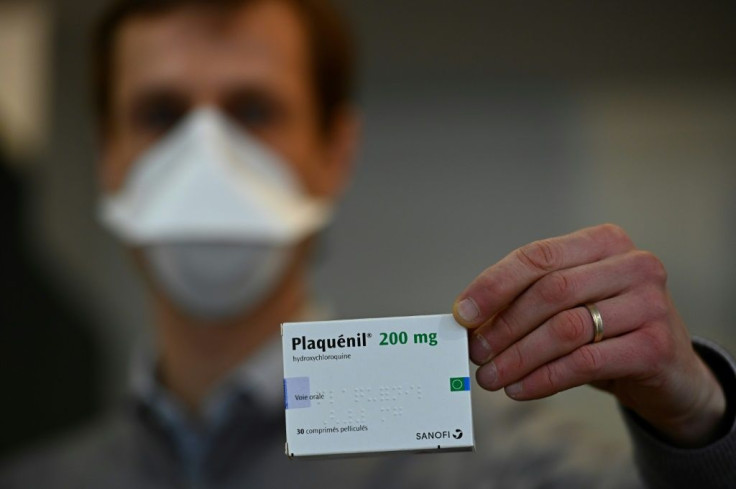Coronavirus Treatment: Trump's Hydroxychloroquine Caused More Deaths, Study Reveals

KEY POINTS
- A new American medical study claimed hydroxychloroquine wasn't a cure for COVID-19
- Instead, this drug was the leading cause of death among patients involved in a clinical study
- The study evaluated 368 patients, of which, 97 were given hydroxychloroquine
Hydroxychloroquine is, quite literally, a "killer drug" when it comes to COVID-19. It turns out this anti-malarial drug, long touted by President Donald Trump as more than a game changer cure for COVID-19, kills more people than it cures, according to a new medical study.
The study, "Outcomes of hydroxychloroquine usage in United States veterans hospitalized with Covid-19," has been published as a preprint on Medrxiv.org, the medical website posting unpublished manuscripts about the health sciences.
In a stunning finding, the study said "an association of increased overall mortality was identified in patients treated with hydroxychloroquine alone." The study also found no evidence using hydroxychloroquine, "either with or without azithromycin, reduced the risk of mechanical ventilation in patients hospitalized with COVID-19."
The authors concluded their findings by "highlight the importance of awaiting the results of ongoing prospective, randomized, controlled studies before widespread adoption of these drugs." They said multiple prospective, randomized trials of hydroxychloroquine were currently being undertaken and will provide valuable information about the safety and efficacy of this antimalarial as an alleged cure for COVID-19.
The study evaluated 368 patients. Of this total, 97 were given hydroxychloroquine; 113 were given hydroxychloroquine (HC) and the macrolide antibiotic, azithromycin (HC+AZ), while 158 were not given hydroxychloroquine (no HC). The key study results:
* Rates of deaths were 27.8% for patients given HC; 22.1% for the HC+AZ group and 11.4% for the no NC group.
* Rates of ventilation were 13.3% for the HC group, 6.9% for HC+AZ and 14.1% for the no HC group.
* Risk of death from any cause was higher in the HC group compared to the no HC group, but not in the HC+AZ group.
* Risk of ventilation was similar in the HC group and in the HC+AZ group compared to the no HC group.
There were no drugs or therapeutics approved by the U.S. Food and Drug Administration (FDA) to prevent or treat Covid-19, but clinical trials and research were underway on many drugs. One of these drugs was a cure for COVID-19 named remdesivir.
Since the 1940s, hydroxychloroquine has been used to treat patients sick from malaria, lupus and rheumatoid arthritis. Trump has said hydroxychloroquine was a "game changer" for COVID-19. He also claimed hydroxychloroquine showed "tremendous promise," without offering proof of his statement.
The study was co-authored by Dr. Joseph Magagnoli, M.S., Dr. Siddharth Narendran, M.D., Dr. Felipe Pereira M.D., Dr. Tammy Cummings, Ph.D., Dr. James W. Hardin, Ph.D., Prof. S. Scott Sutton, Pharm.D. and Dr. Jayakrishna Ambati, M.D. The authors worked at the Columbia Veterans Administration Health Care System in South Carolina, the University of South Carolina and the University of Virginia.
© Copyright IBTimes 2025. All rights reserved.





















